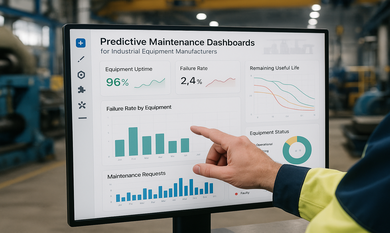The increasing global focus on sustainability has made Environmental, Social, and Governance (ESG) reporting and carbon credit tracking essential for organizations. Investors, regulators, and consumers now demand transparency on how businesses manage their environmental impact and align with sustainability goals. Traditional reporting frameworks, however, face issues of data integrity, traceability, and standardization.
This is where Blockchain technology is emerging as a transformative solution. With its decentralized, transparent, and immutable nature, Blockchain ensures reliable ESG reporting and efficient carbon credit tracking, helping organizations meet compliance requirements while building trust with stakeholders.
Challenges in ESG Reporting and Carbon Credit Tracking
Despite its importance, ESG reporting has long been plagued by:
- Data Manipulation Risks – Manual reporting leaves room for errors or greenwashing.
- Lack of Standardization – Different frameworks make it difficult to compare ESG data.
- Limited Transparency – Stakeholders often question the authenticity of sustainability claims.
- Carbon Credit Mismanagement – Fraud and double counting undermine the credibility of carbon trading systems.
Businesses need technologically advanced solutions that enhance transparency, improve auditability, and ensure regulatory compliance.
How Blockchain Solves These Challenges
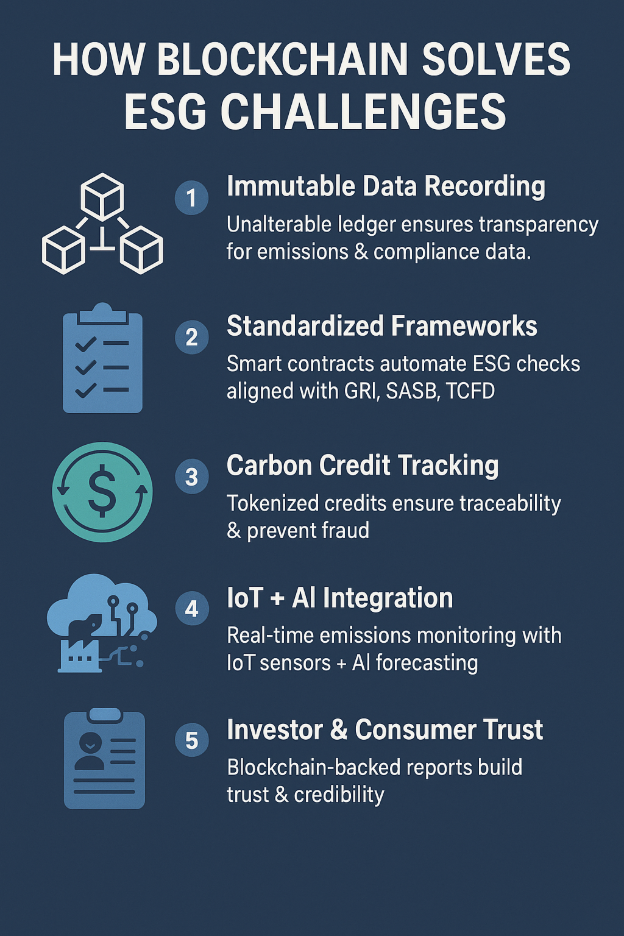
1. Immutable and Transparent Data Recording
Blockchain provides an immutable ledger, ensuring ESG data cannot be altered once recorded. Companies can store emissions data, sustainability initiatives, and compliance reports on Blockchain, enabling real-time visibility for regulators and investors.
2. Standardized ESG Frameworks
By leveraging smart contracts, Blockchain can automate ESG compliance checks, ensuring that reporting aligns with global frameworks such as GRI, SASB, and TCFD. This reduces discrepancies and allows seamless comparisons across industries.
3. Efficient Carbon Credit Tracking
Blockchain makes carbon credits traceable and verifiable. Each credit can be tokenized and tracked across its lifecycle, preventing double counting or fraud. Organizations can confidently trade credits while ensuring accountability.
4. Integration with IoT and AI
Combining Blockchain with IoT sensors enables real-time emissions monitoring. For example, energy usage data from factories can be automatically logged on the Blockchain. Paired with AI development services, IT services for startups dallas, businesses can automate compliance monitoring and sustainability forecasting.
5. Boosting Investor and Consumer Trust
Blockchain-backed ESG reports instill confidence among investors and consumers, showing that the organization is genuinely committed to sustainability rather than mere compliance.
Use Cases of Blockchain in ESG and Carbon Credits
- Supply Chain Transparency – Companies can verify if raw materials are sourced ethically.
- Energy Sector – Renewable energy providers can tokenize green energy credits.
- Manufacturing – Automated carbon emission tracking integrated with production data.
- Financial Services – Banks and investors can assess ESG performance before funding.
Business Benefits of Blockchain-Enabled ESG
- Regulatory Compliance – Simplifies alignment with evolving global ESG standards.
- Operational Efficiency – Reduces manual reporting costs and errors.
- Fraud Prevention – Eliminates manipulation and enhances carbon credit credibility.
- Investor Confidence – Builds strong reputational advantage for sustainable organizations.
- Future-Proofing – Positions businesses as leaders in the shift toward sustainability-driven economies.
Key Considerations for Adoption
- Integration with Existing Systems – Businesses must ensure seamless compatibility.
- Scalability – Blockchain solutions should handle high volumes of ESG data.
- Interoperability – Collaboration across industries and governments is vital.
- Governance and Security – Well-structured governance ensures ethical usage and secure data management.
Conclusion
Blockchain has proven its potential to transform ESG reporting and carbon credit tracking by offering trust, transparency, and traceability. As sustainability becomes non-negotiable for businesses, Blockchain adoption ensures compliance and credibility while building stronger relationships with stakeholders.
Partnering with a trusted Blockchain development company in Dallas allows organizations to accelerate ESG innovation and sustainability leadership.
Take the Next Step Toward Sustainable Innovation
At Theta Technolabs, we specialize in delivering next-generation Web, Mobile, and Cloud solutions. Our expertise in Blockchain and emerging technologies helps organizations streamline ESG reporting, carbon credit tracking, and compliance systems.
📩 Contact us today: sales@thetatechnolabs.com

















.png)
























.png)

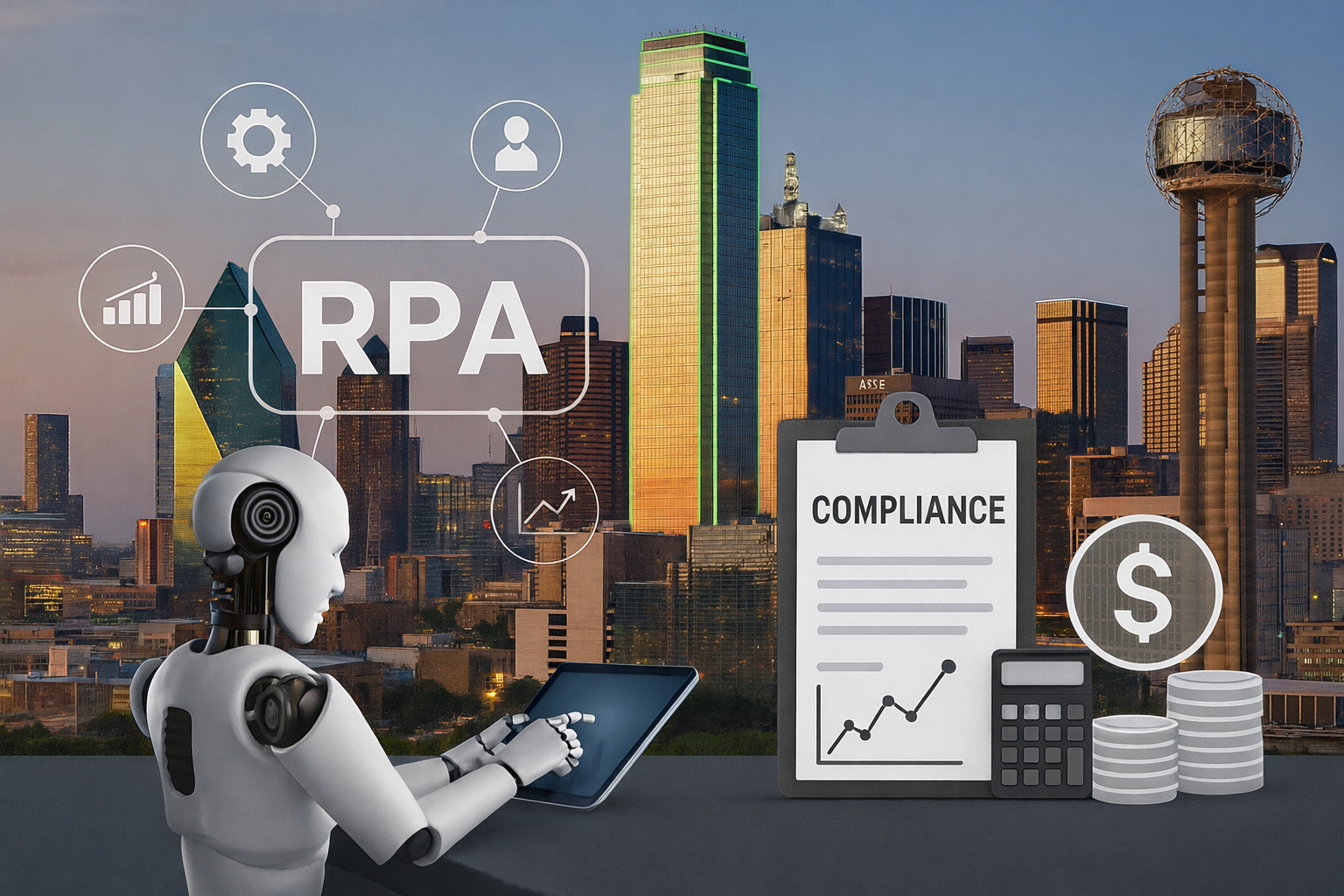

.png)



.png)








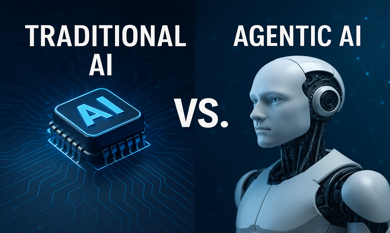


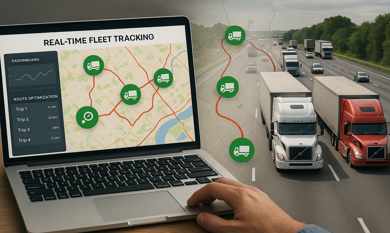





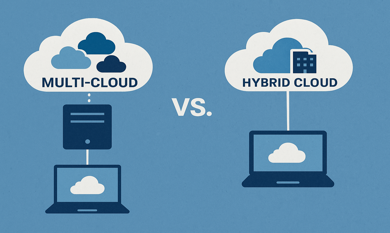










.png)
.png)






.png)

.png)
.png)
.png)


.png)
.png)
.png)
.png)

.png)





